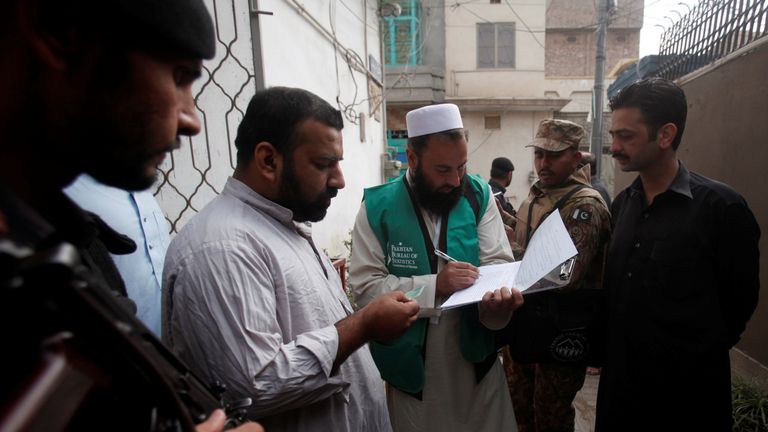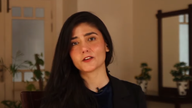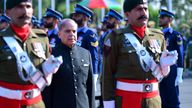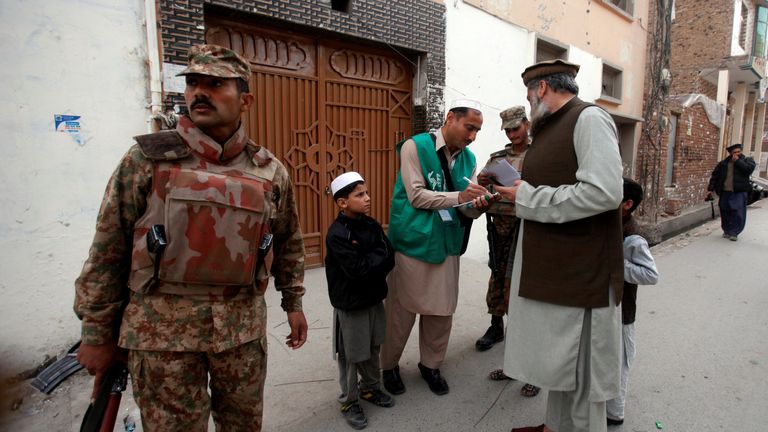Pakistan begins first census in 19 years amid massive military security
The huge task gets under way - but there are worries about intimidation by landlords and influential families.
Wednesday 15 March 2017 14:17, UK
Pakistan has begun its first national census in 19 years amid tight security from around 200,000 military personnel.
A 70-day data gathering operation, starting in 63 districts and protected by police and soldiers, is being carried out by 118,000 officials.
The previous census was completed in 1998 and the long delay in updating it is down to a lack of funds, political disputes and insufficient troops to keep everybody involved safe.
But in December the chief justice of Pakistan's supreme court set a deadline of March or April, saying a census was essential to democracy.
Seats in Pakistan's parliament are allocated according to population density and without a census the number of seats cannot be decided.
Rural populations in the world's sixth-largest country frequently change as people try to escape poverty and ethnic or sectarian violence by moving to towns and cities.
The security staff will protect census teams and ensure households can enter data without being intimidated by powerful feudal landlords and political families who fear losing influence.
"We made all the arrangements for a smooth, safe and transparent process of population census," said census official Javed Iqbal in Peshawar, capital of the volatile Khyber Pakhtunkhwa province.
For the first time, transgender Pakistanis will be counted - although forms had already been printed when the decision was made.
"We have been anxiously waiting for the process to begin but it hurt us as there is no separate column in the form," said Farzana Riaz, president of Trans Action.
Afghan refugees will also be included, despite opposition from the southwest province of Baluchistan on the border with Iran, where ethnic Baluchs fear becoming a minority.
Other communities have criticised the decision to include only nine of the estimated 70 languages used in Pakistan.
Households will also be asked how many toilets they have, as the United Nations estimates up to 40% of Pakistanis defecate in the open air with dramatic health consequences, especially for children.
In a sign of how much has changed since the previous census, Karachi's population was put at 9.2 million in 1998, but current estimates now vary between 18 and 23 million, according to the National Database and Registration Authority.




